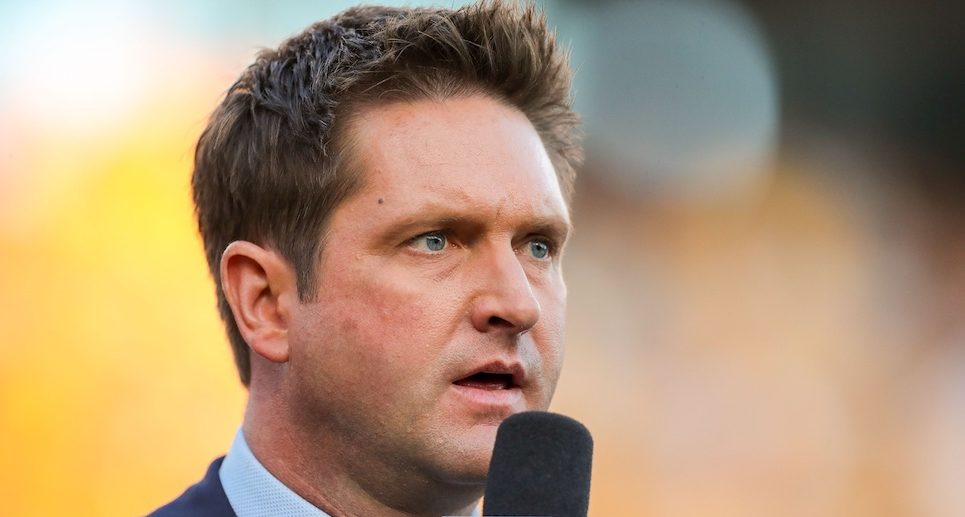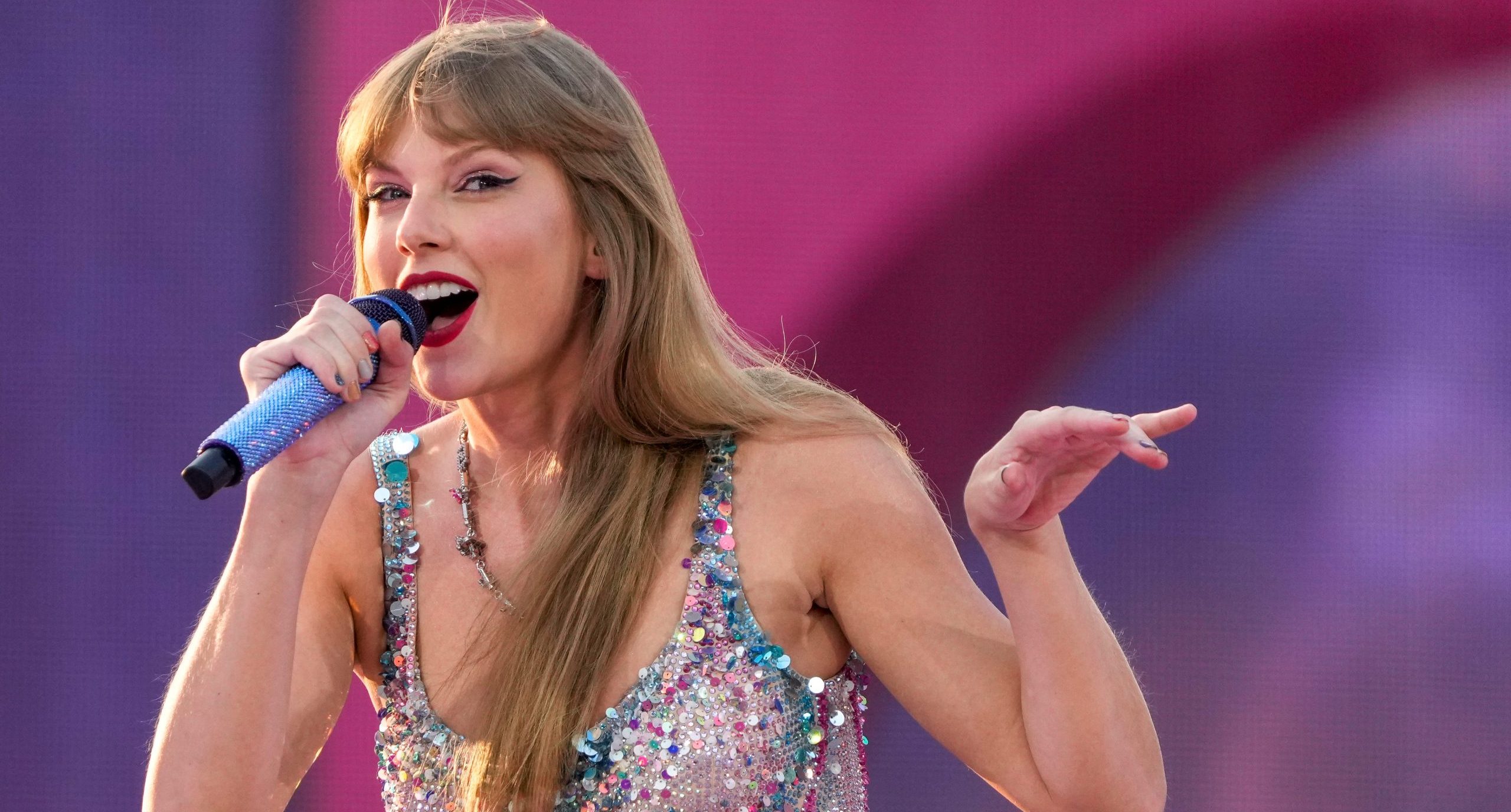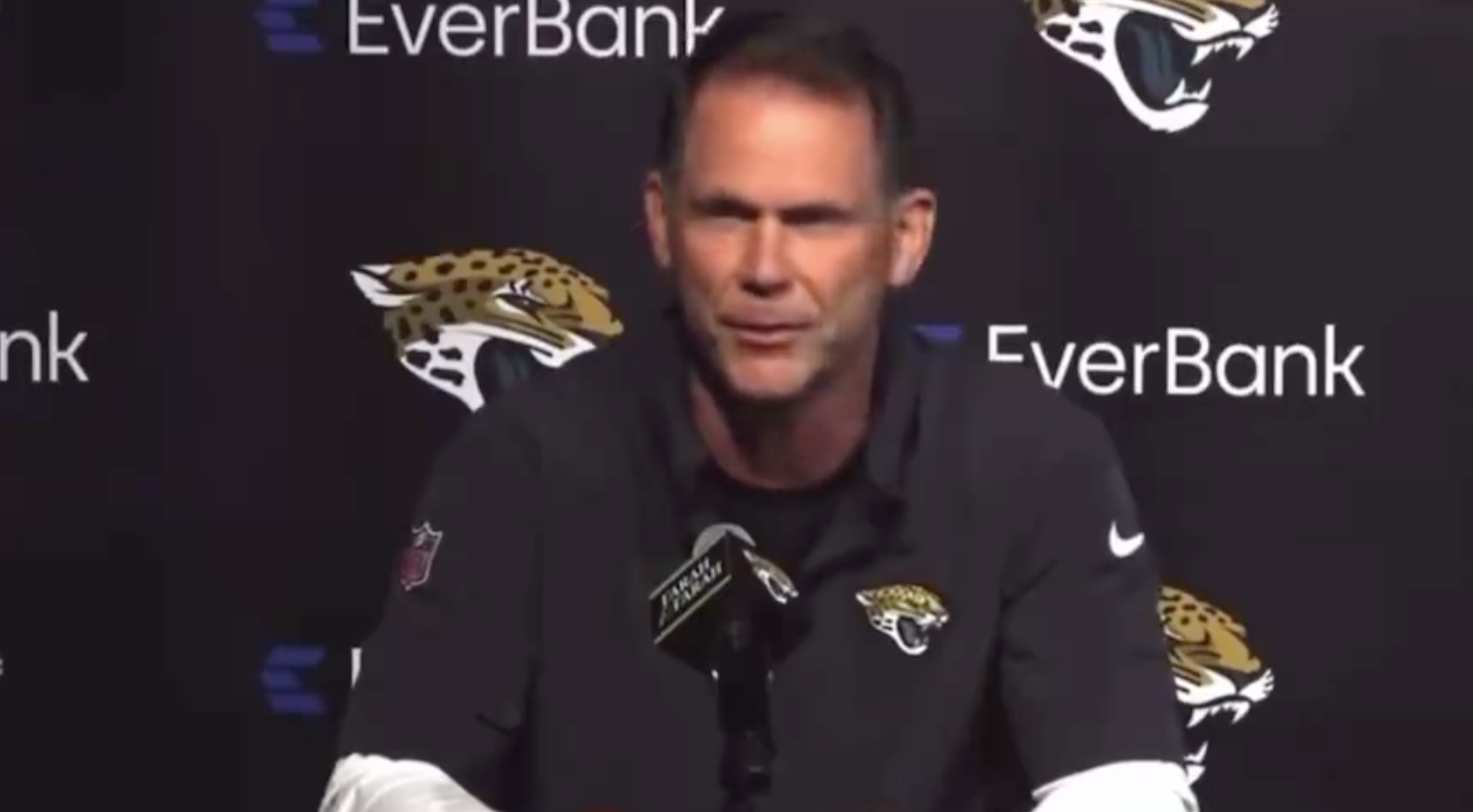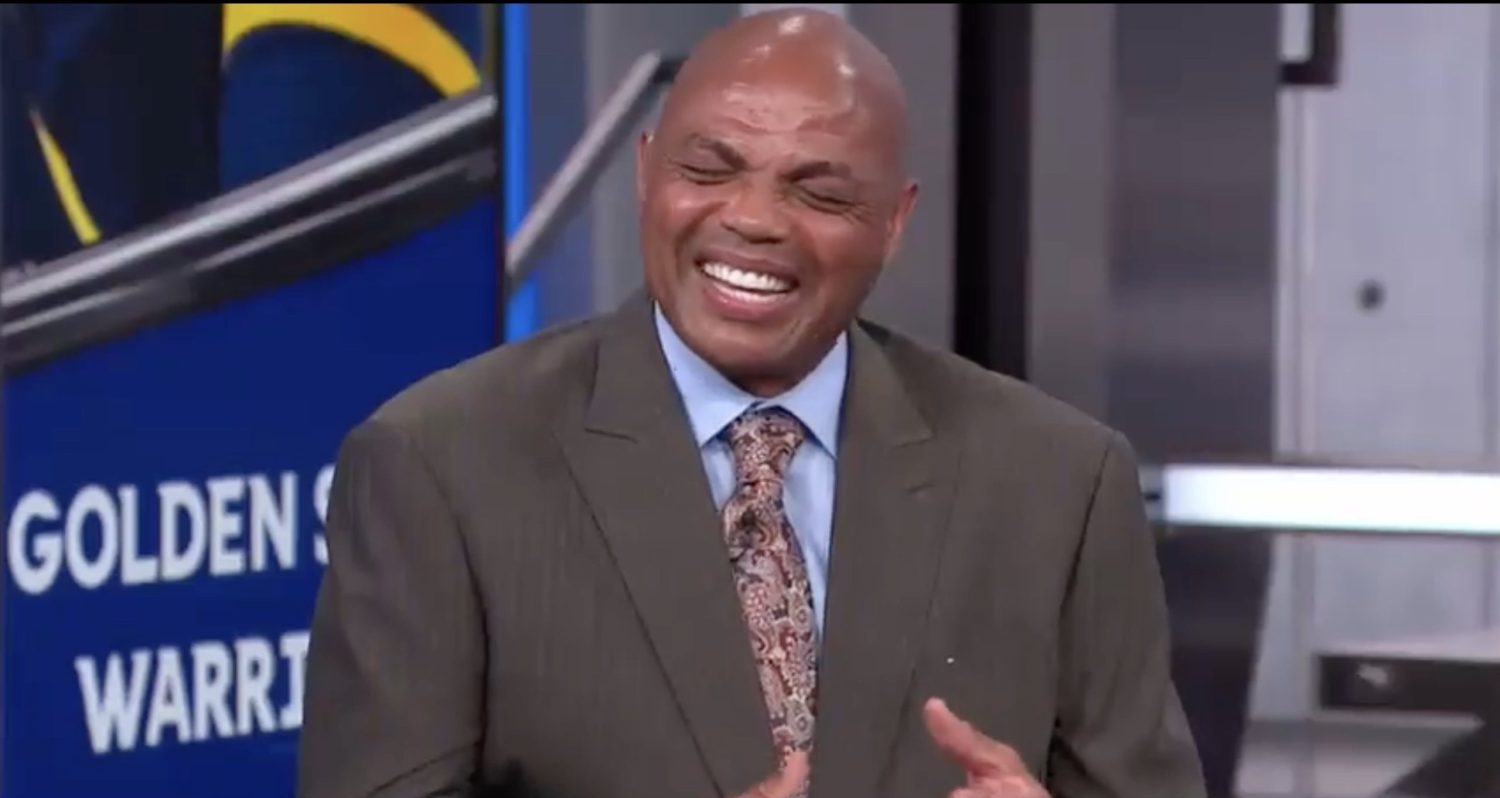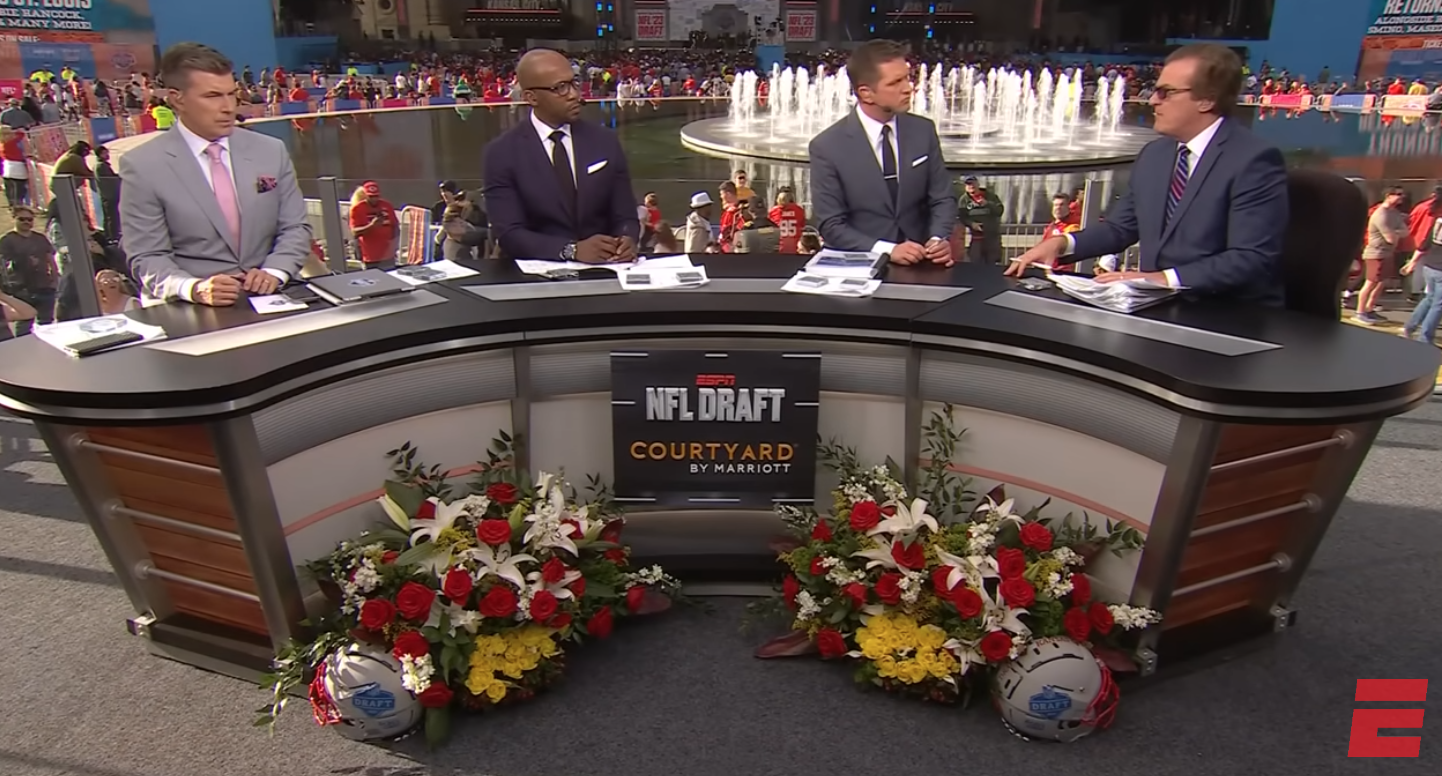The NHL on NBC package expires after the 2021 season, and a new report suggests that it is not going to return in its current form, with a significant portion of the league’s national rights instead going to ESPN. The possibility of a larger NHL presence on ESPN (they currently stream some games on ESPN+) has been discussed for quite a while, including in a piece we penned in February 2018, and the odds there have seemed to rise recently with the Worldwide Leader making plenty of overtures towards the NHL in recent years and helping to remove some of the stain of comments like “it doesn’t translate to television, and where it really doesn’t transfer much to is a national discussion” (from then-SVP Vince Doria in 2012; Doria retired in 2015). And now, it appears that ESPN is getting even a larger percentage of the NHL’s rights than many had speculated, with a report from Sportsnet’s Chris Johnston indicating that this is expected to even give four Stanley Cup Finals to ESPN (those may or may not be simulcast on ABC as well; no indication on that yet). Here’s more on the ESPN-NHL deal from Johnston’s piece:
Significant murmurs surfaced Tuesday that the NHL has sewn up one-half of its new U.S. media rights package.
ESPN is believed to have reached a seven-year deal to become one of the league’s media partners starting next season, according to multiple league and industry sources.
There was no confirmation from the NHL on an agreement that is expected to see ESPN get the rights to broadcast four Stanley Cup Finals between 2022 and 2028, plus streaming rights for Disney.
On a lot of levels, selling “one-half” of the NHL’s national rights to ESPN seems to make sense for all parties. Despite occasional NHL-critical comments from the likes of Doria and Max Kellerman (and the latter, although it happened last year versus in 2012, is far less important; First Take has been long established as a venue where no one should take anything said there seriously, while Doria was an actual decision-maker at the time he dumped all over the NHL), ESPN has long recognized that there’s some value in the NHL. They were a NHL broadcaster from 1992-2004, and the last two national deals not involving them appears to be more about timing than anything else.
In 2005, coming out of a season-long lockout, the NHL reportedly made an offer to ESPN to continue as a broadcaster for $60 million a year, and ESPN turned them down. That led to the league turning to Comcast’s Outdoor Life Network, which paid close to $200 million for a large package of NHL rights for three years. (That included Games 1 and 2 of the Stanley Cup Finals each year; NBC broadcast the rest of those series under a profit-sharing agreement, and also broadcast some regular season games that year.) OLN eventually turned into Versus, and it then turned into NBCSN after Comcast bought NBC (first announced in 2009, that deal was completed in January 2011), and that paved the way for the 10-year deal in April 2011 that saw NBC/NBCSN/Comcast sign on as the NHL’s national U.S. broadcaster for 10 years. At the time, that made a lot of sense; the new combination of broadcast and cable under the NBC/Comcast umbrella was a good fit for the NHL and for the networks, and at that point, ESPN didn’t have enough channels to really be a cromulent NHL option, especially given their NBA focus.
Now, though, giving ESPN “one-half” of the U.S. rights seems to make much more sense. Since the launch of The ACC Network, ESPN has achieved “Ocho” status, meaning they have a whole lot of channels to fill with programming. And considering that ESPNEWS is no longer news and is mostly an overflow sports channel (as is ESPNU), it makes sense for ESPN and corporate parent Disney to chase whatever rights they can. They now have places to put them, especially considering that they now have ESPN+ (which drastically needs programming, despite its strong bundle-boosted subscriber numbers, and is also a way for ESPN to rearrange finances on particular rights deals).
And NHL rights are not insignificant. The ESPN+ streaming-only deals the NHL previously had had value for both sides, with the NHL able to gain some money from those and ESPN+ able to say “Look, we have actual games!” (What they actually have really doesn’t matter that much while their service is essentially free when bundled with better services Disney+ and Hulu, but it’s nice for them to be able to say “We have things!”) This reported deal would have even more value. NHL games aren’t always great content for broadcast networks (NBC muddles through with the regular-season games, and those broadcasts are fine in key demographics, but not always in overall viewers; the playoff and Stanley Cup Final games are better, though), but they’re solid on cable, especially when it comes to the postseason. And while they’re unlikely to ever be a top-drawing property in the U.S., they’re a fine mid-tier property, with upside above many others in that range.
The latest
An interesting element to keep an eye on here is going to be ABC simulcasts, especially when it comes to the Stanley Cup Finals. The Finals have usually had a few games on cable-only (often games 3 and 4), but not the whole series. If this is only an ESPN deal, then that will make the Finals less accessible to the viewing public. But given how many times ABC has simulcast seeming ESPN exclusives recently (particularly with Monday Night Football and NFL playoff games), it certainly seems pretty plausible that at least some of the games during “ESPN” Cup final years will wind up on ABC as well. (And while ABC carries the NBA Finals as well, that isn’t necessarily a huge hurdle; in 2019, the last normal scheduling year, the Stanley Cup Finals and NBA Finals did not have games on the same days, and that’s been the case during a number of recent years.)
It’s also worth keeping an eye on where the other half of this package lands. The most likely option would seem to still be NBC; there’s a long history of NHL coverage there, and even with NBCSN going away, it feels like there are deals to be done with Peacock. And with ESPN stepping in for “one-half” of these rights, that means there’s presumably now less cost to NBC parent Comcast, and less obligation; they can take on the games that work for them without feeling the need to broadcast all of it, which may lead to Golf Channel and CNBC not having to air playoff games. And NBC would seem to still be a better fit than anyone else, including rumored bidders Fox and Turner. But nothing’s guaranteed at this point. It is certainly notable to see such a prominent part of the NHL package heading to ESPN, though.
[Sportsnet; top image is a NHL/ESPN contract signing in 1998]


